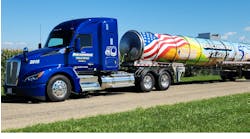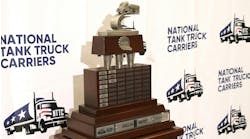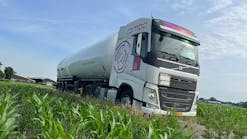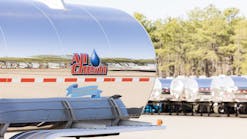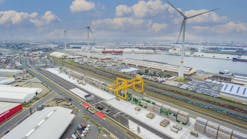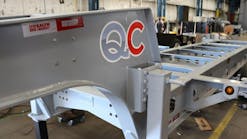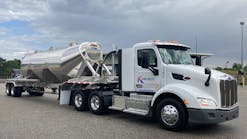As the US economy recovers from the worst post-war recession, freight transportation is poised for a sustained recovery as well, the American Trucking Associations reports in its newly released ATA US Freight Transportation Forecast to 2021.
IHS Global Insight and Martin Labbe Associates, which contracted with ATA to conduct the study, project that by 2021 total freight tonnage will grow 25% and total freight transportation revenue will grow 69%. However, that positive outlook is set against the backdrop of the recession; the nation's freight pool contracted by almost 12.5% in 2009.
The trucking industry can expect its share of total tonnage to increase gradually from 68% in 2009 to 70.7% by 2021. Trucks hauled 81.9% of freight tonnage by revenue in 2009.
“All modes of freight transportation were impacted by the ‘Great Recession,’ but I'm growing more optimistic about the long-term outlook,” said ATA Chief Economist Bob Costello. “There are certainly some risks, but I think better days do lie ahead for the freight hauling business.”
The forecast also includes information about other transportation modes, including rail (carload and intermodal), domestic water, pipeline, and domestic air.
Railroads' overall share of total tonnage will slip slightly from 14.7% to 14.1% by 2021, according to the report, while air cargo tonnage is estimated to grow from 11.7 million tons in 2009 to 18.4 million tons in 2021. Water and pipeline freight are also predicted to grow slightly over the forecast period.
In addition to its projections about volume and revenue for all modes of freight transportation, the forecast examines other key indicators for the US economic outlook. Consumer spending is predicted to expand only 2.5% per year during the next decade, and the unemployment rate will decline, but likely remain at 6.7% by late-2015, two percentage points above pre-recession levels. The forecast also examines industrial output, business investment, trade, housing starts, vehicle sales, and other key drivers of freight.
The forecast uses a 2009 baseline and projects freight tonnage and revenue by mode to 2021, as well as the number of trucks that will be needed to move the freight. This year's edition also includes historical data for all modes of freight dating back to 1990, useful for gauging growth, and revised revenue and tonnage figures back to 2003.
